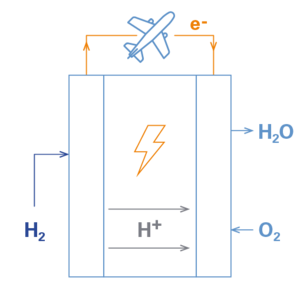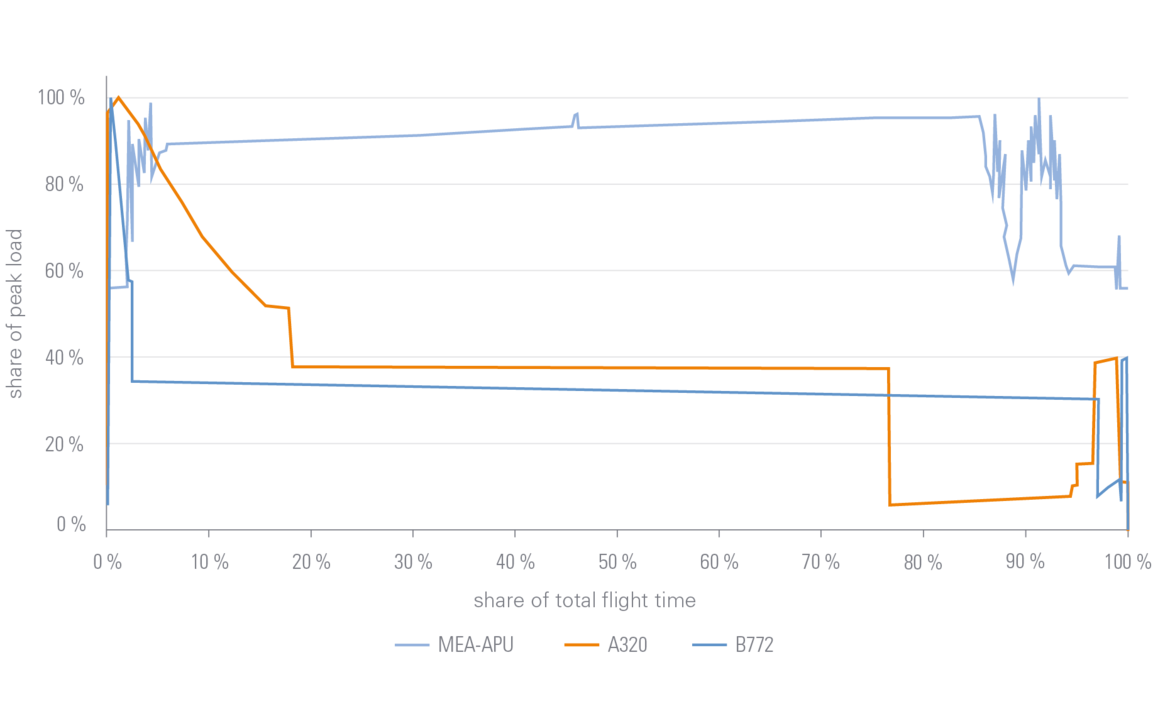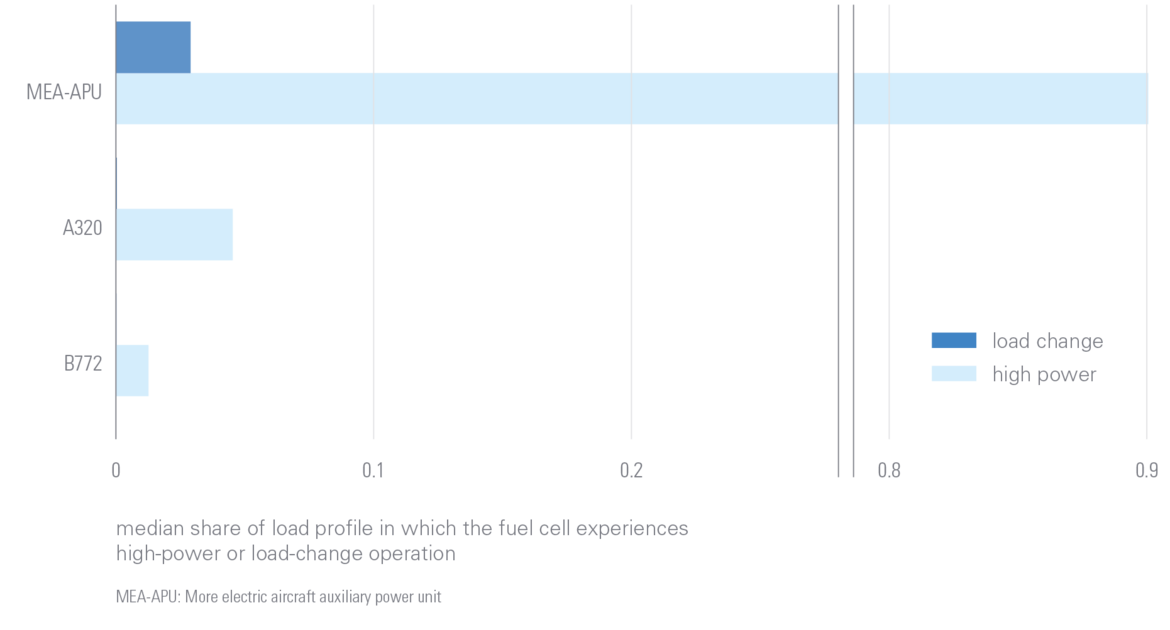Transitioning to (hybrid-)electric concepts requires the optimisation of electrochemical storage and conversion devices in order to fulfil the demanding requirements regarding their performance and reliability in aviation applications. In this context, prognostics and health management (PHM) methods can make a valuable contribution to preventing performance decline or failure.
The research efforts concerning the respective technologies for fuel cells are in a comparatively early stage – not least because the relevant degradation processes are considerably complex.

A continuously improved understanding of the fundamental mechanisms as well as developments in the field of artificial intelligence, however, are leading to significant progress, which has been detected by the Bauhaus Luftfahrt Technology Radar. In order to roughly assess the potentials of PHM technologies for aviation applications, the effects of certain ageing processes on the remaining useful life of fuel cells were investigated. These effects are most pronounced at high load conditions or rapid load changes, which typically occur during take-off and landing in aviation-specific load profiles. A higher cell number can counteract accelerated ageing caused by peak loads. Furthermore, the lifetime can be increased by adaptive hybridisation or by implementing a load- and pressure-dependent gas inflow. Depending on the application scenario, improvement potentials of up to several 100 % have been demonstrated. These results indicate that accurate control strategies could have a significant influence on durability, maintenance needs, and cost efficiency of polymer electrolyte fuel cells (PEFC).
Ebner, K., & Koops, L. (2021). Health Monitoring, Fault Diagnostics, and Failure Prediction for Fuel Cells in Aviation. 11th EASN International Conference on Innovation in Aviation & Space. Virtual event.
Ebner, K., & Koops, L. (2022). Potentials of Prognostics and Health Management for Polymer Electrolyte Fuel Cells in Aviation Applications. Aircraft Engineering and Aerospace Technology, Manuscript accepted for publication. doi:10.1108/AEAT-01-2022-0020


